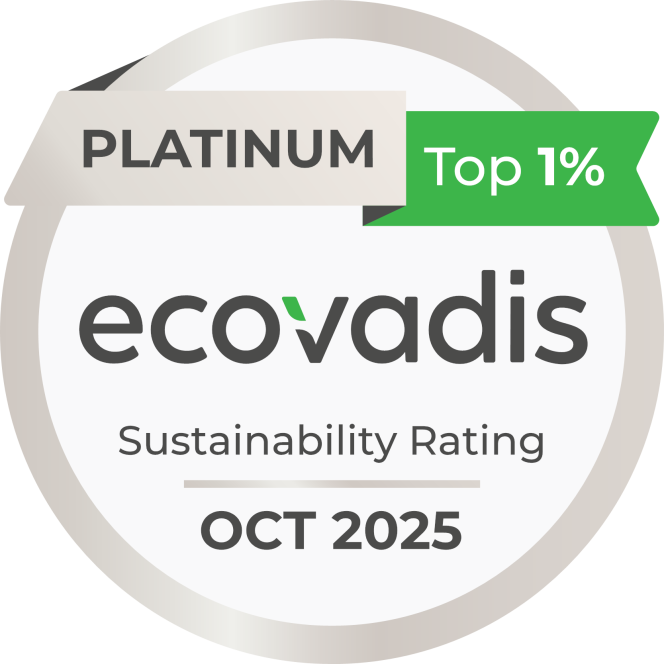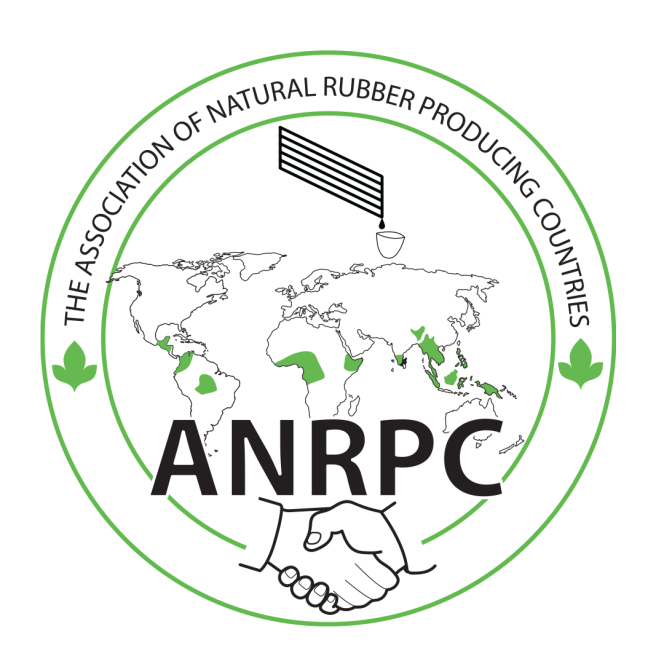Need for scrap tyre disposal policy
- By Rahul Shringarpure
- February 22, 2021

The year 2020 has been a year like no other. The pandemic has brought everyone on the same platform. We all have been a mute witness to the rage of Nature and the apocalypse it can create. The question which persists in my mind is ‘Have we really learnt any lessons from the same?’ Are we going to treat Mother Earth better and build a sustainable planet for our future generation?
On a brighter note, most economies are showing signs of phenomenal recovery. The automobile sector looks to be one of the biggest beneficiaries. Vehicular traffic on the road and the number of new vehicle registrations are a big indicator of the same. In fact, an Indian two-wheeler manufacturer broke its own export record in December 2020. Our belief has proved true again. The human race has endured many such pandemics throughout the years of evolution and evolved better, stronger, smarter.
Processing ELTs
Indogreen Enviro has been involved in the process of ELTs (End of life Tyres) for about a decade.
We have been witnessing the growth of the tyre recycling industry. From the 1970-2000, the majority of organised ELT recycling was about making ‘Devulcanised rubber reclaim sheets.’ These sheets are used in a wide range of applications like tyre re-treads, bicycle tyres, conveyor belts, rubber compounds to name a few.
From 2000 onwards the market started changing due to the introduction of radial tyres. The radial tyres had high tensile steel in them and now could not be grinded directly like the nylon tyres. They need new technology Shredders, Raspers, Granulators to make it ready for grinding. This decade saw many high technology shredding and granulation plants coming up across the country. This included India’s largest and fully automated 100 Mt/annum plant till date Vapi, Gujarat. These granulation plants created a new market for ELT granules-based playground tiles and mats. The CRMB(Crumb Rubber Modified Bitumen) also gained acceptance in large national road construction projects.
 Batch type pyrolysis plants
Batch type pyrolysis plants
From 2005 onwards, there was a new tyre recycling technology introduced to the Indian market - ‘Batch type pyrolysis plants.’ These plants were initially imported from China. Though profitable, they were extremely unstable, environmentally non-compliant and unsafe for operation. Due to their profitability ,By the year 2019,India had more than 1000 batch type-pyrolysis plants installed. The combined tyre requirement per day for these plants was about 10,000 Mt/day. That would mean a requirement of 10,00,000 passenger car tyres every day, to give a perspective. This monster had a huge appetite that could not be met with tyres from India. So these pyrolysis companies started looking for imported tyres with a perpetual supply possibility from round the globe.
There was only one challenge. The pyrolysis plants are not allowed to import tyres. The shredding companies were allowed to import with a license from DGFT. The batch type pyrolysis companies started buying container loads of tyres from the shredding companies. India started importing about 900,000 MT annually making it the largest importer of ELT in the world until July 2019.The Public Interest Litigation filed against the ‘Batch type pyrolysis plants’ put the brakes on these transactions. The government was forced to take cognisance of the humungous nature of the impending matter at hand.
This is the India story, but could be a similar story for any country from Asia where the Scrap Tyre disposal policy is not yet framed or implemented. I am taking the stance of the agitator than just being a mute spectator. There is so much that can be done than what is being done today.

Scrap tyre disposal policy
There is a strong buzz about ‘Circular Economy’ in Europe and the US. Large tyre companies and chemical giants are investing in various tyre technologies to bring the derivatives from the tyres to be reused in manufacturing new tyres. In India, we don’t even have a national scrap tyre disposal policy. Most local tyre companies are still waiting for an ‘EPR’ to start thinking of sustainable disposal.
In fact, we as a country need ‘Circular economy.’ The responsibly recycled ELT can create high quality reclaim rubber, High calorific value oil with possibility on further hydro treatment to distil commercial grade diesel & petrol, commercial grade carbon black for manufacturing pigments, etc, liberated fibre to make thermoplastics, liberated gases that can be further processed, this can go on and on. There is so much of interest from large companies to set up plants to process this waste but they hesitate because of the lack of a government framework to support the huge capital investment required.
Despite all odds, some companies from India have done some amazing work in developing innovative ELT recycling technologies. A fine example would be Radhe Renewable Energy Development Ltd, Rajkot. They conceived, developed and now operate the ‘World Largest 100 MT Per Day Single Reactor Continuous Pyrolysis Plant ‘ for the last 8 years in Bhilwara, Rajasthan. No other company from around the globe can boast of this feat.In fact some of the large global giants who were looking for a commercial scale large continuous plant could not believe that such a plant and technology existed, that too from a non-descript town from India. This company now supplies ASTM grade Carbon Black and High Calorie fuel to Indian tyre industry beginning the ‘Circular Economy.’

 Another interesting Company is Hotfut Sports, an award-winning sports infrastructure development and management company that has been one of the largest consumers of turf technology and synthetic turf products across its various formats. These products have a primary infill requirement of SBR rubber. HotFut has consciously been adapting its procurement process to ensure all SBR and infill / shock-pad requirements are sourced responsibly using recycled ELT’s / rubber scrap making all their facilities more environmentally friendly. They have structured solutions for forward thinking tyre companies wanting to pro-actively process their ELT with a win -win proposition. Many major tyre companies have found their solution very sustainable as well as profitable.
Another interesting Company is Hotfut Sports, an award-winning sports infrastructure development and management company that has been one of the largest consumers of turf technology and synthetic turf products across its various formats. These products have a primary infill requirement of SBR rubber. HotFut has consciously been adapting its procurement process to ensure all SBR and infill / shock-pad requirements are sourced responsibly using recycled ELT’s / rubber scrap making all their facilities more environmentally friendly. They have structured solutions for forward thinking tyre companies wanting to pro-actively process their ELT with a win -win proposition. Many major tyre companies have found their solution very sustainable as well as profitable.
Last year, Internet was abuzz about this start up ‘Blink Green’ from Pune, India. They used ELT for making attractive ladies’ footwear and purses. They have found the utility of this wonderful waste and now is utilising her designing skill and the expertise of the cobble community to churn out beautiful, durable items for the domestic and global market.
These kinds of stories are emerging from all across the continent Imagine the power of scalability of these kind of products with the right kind of financial and marketing support.
I look forward to the day (soon) when we have the ‘Scrap tyre disposal policy’ is finally rolled out and the top tyre companies wait for the EPR policy is over. With a sizeable contribution coming out of their respective CSR budgets and ATMA’s able guidance, a national body to look at new & innovative sustainable disposal practices for ELT could be established. This would be a giant first step taken in the Asian subcontinent towards sustainable recycling of this incredible waste and thus setting a precedence for other countries to follow.
Birla Carbon Secures Platinum Medal In EcoVadis Sustainability Rating
- By TT News
- December 27, 2025

Birla Carbon, a leading global manufacturer and supplier of high-quality carbon materials, has been awarded the prestigious Platinum sustainability rating by EcoVadis, ranking it within the top one percent of all assessed companies globally. This honour recognises the firm’s enterprise-wide leadership in integrating sustainability across its operations, innovation and value chain.
The evaluation specifically commended its strong performance across four key areas: Environment, Labor & Human Rights, Ethics and Sustainable Procurement. This achievement is further validated by extensive third-party certifications, with over 75 percent of operations certified to international standards including ISO 14001, ISO 50001, ISO 45001, SA8000 and ISO 27001, underscoring the consistency and strength of its sustainability management systems.
John Loudermilk, President and CEO, Birla Carbon, said, “This Platinum rating reflects the steady progress we are making in embedding sustainability at the core of our business. Our growth strategy is geared towards delivering sustainability through innovation, operational excellence and responsible practices across our global footprint. We continually invest in sustainability and circularity-driven processes, keeping our operations sustainably efficient while creating long-term value for our customers, partners, communities and employees. Our sustainability strategy, Share the Future, serves as a roadmap to a sustainable future and guides our actions towards our aspiration of reaching net zero carbon emissions over the next 25 years. Being recognised among the top one percent of companies globally is a testament to the commitment of our teams worldwide.”
Yokohama Rubber And RAOT Hold 10th Joint Seminar For Thai Natural Rubber Farmers
- By TT News
- December 26, 2025
The Yokohama Rubber Co., Ltd. recently conducted an educational seminar for local natural rubber farmers in partnership with the Surat Thani branch of the Rubber Authority of Thailand (RAOT). This marked the 10th such event since the programme's inception in 2020, involving 50 local farm households. Attendees received complimentary fertiliser, developed with RAOT's expertise, as part of the ongoing support.
The seminar curriculum covered essential agricultural topics, including soil and plant nutrition, correct fertiliser application and methods to prevent contamination in natural rubber. To commemorate the 10th seminar, the programme was expanded to include guest speakers from local government, police and healthcare. These guests addressed broader community and safety issues, such as human rights for foreign and minority workers, road safety and occupational health. A particular focus was placed on practical well-being, with the local hospital director offering guidance on preventing injuries during tree tapping and managing encounters with poisonous insects.
Post-event feedback from participants was overwhelmingly positive. Many expressed that they gained new, systematic knowledge about cultivation practices, despite years of experience. Several noted that hearing directly from a rubber manufacturer reinforced the critical importance of purity in their product. Others found the health and safety advice immediately useful. The engaging delivery of the seminar was also highlighted, with one farmer mentioning a desire to recommend the valuable and enjoyable experience to peers.
This initiative is a direct implementation of a memorandum of understanding (MoU) signed between Yokohama Rubber and RAOT in January 2020. The MoU focuses on economic support for farmers and improving supply chain traceability, aligning with the company's Procurement Policy for Sustainable Natural Rubber. Hosted in the region where Yokohama’s Thai natural rubber processing subsidiary, Y.T. Rubber Co., Ltd. (YTRC), operates, the seminar exemplifies the policy's guideline to support small-scale farmers within the supply chain.
As a founding member of the Global Platform for Sustainable Natural Rubber (GPSNR), Yokohama Rubber is committed to advancing these principles. The company views such efforts as integral to creating shared value under its sustainability slogan, ‘Caring for the Future’, and contributes to broader United Nations Sustainable Development Goals through the promotion of sustainable raw material procurement.
Rubber Research Institute Of India Develops Latex-Based Paint
- By TT News
- December 26, 2025
In a significant event for India’s rubber sector, Minister for Ports, Co-operation & Devaswoms V N Vasavan inaugurated a ceremony for the transfer of innovative latex-based paint technology. This eco-friendly paint, a product derived from natural rubber, was developed by the Rubber Products Incubation Centre of the Rubber Research Institute of India. The technology was formally handed over to Kerala Paints Industries Private Ltd., with the Minister highlighting the event's historic nature for launching a sustainable product and stressing the importance of increasing domestic natural rubber consumption to improve grower returns.
Rubber Board Executive Director M Vasanthagesan outlined the centre's role in converting research into market-ready goods, reaffirming the Board's dedication to creating innovative, value-added rubber products. The gathering also heard remarks from several key figures, including Mahatma Gandhi University's K V Dayal, RRII Director Dr Debabrata Ray, RRII Senior Scientist Dr Shera Mathew and Kerala Paints' Managing Director Midhun P Pullumettel.
- Association of Natural Rubber Producing Countries
- ANRPC
- Natural Rubber
- Monthly NR Statistical Report
ANRPC Publishes Monthly NR Statistical Report For November 2025
- By TT News
- December 22, 2025

The Association of Natural Rubber Producing Countries (ANRPC) has released its Monthly NR Statistical Report for November 2025, providing an overview of key developments in the global natural rubber sector.
While a modest rise in global production of 1.3 percent is anticipated for the year, this follows a revised, lower output forecast for Indonesia. Concurrently, worldwide demand is projected to grow by a more subdued 0.8 percent, bolstered by an upward adjustment in Indonesia's own consumption figures.

Recent price pressures have emerged due to this combination of uncertain supply, influenced by unpredictable weather patterns and generally muted demand. However, there are sporadic positive indicators, including noticeable recoveries within the tyre sector across some regional markets.







Comments (0)
ADD COMMENT